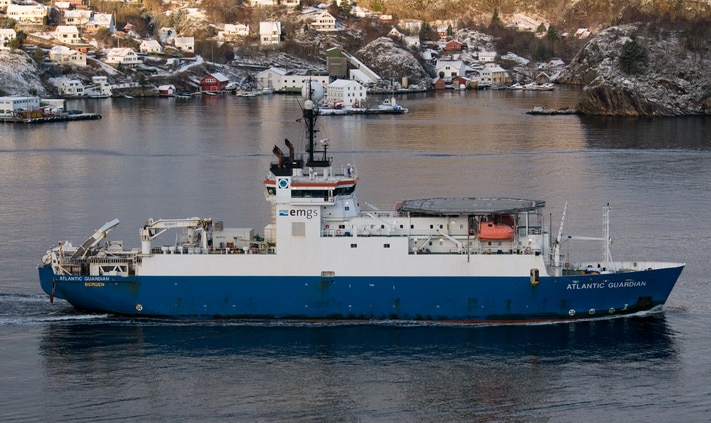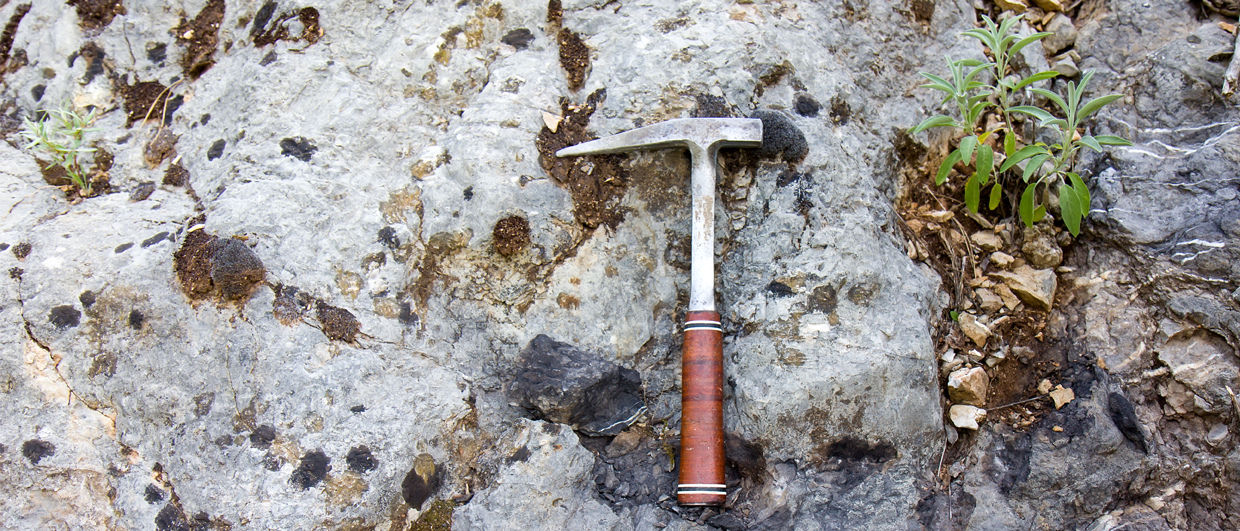The second AAPG Energy Transition Forum was entitled ‘A New Era for the Geoscientist: Competing in a New Energy Landscape’ and looked at how the energy transition will affect geoscientists.
Conference Round Up: Energy Transition Forum – A New Era for the Geoscientist
The inaugural AAPG forum devoted to the energy transition in September 2018 was both stimulating and thought-provoking, so it was no surprise that the second event, held in Edinburgh in October 2019, proved to be equally interesting and inspiring.
Edinburgh Castle. Source: Kevin Phillips / Pixabay.
The second Energy Transition Forum was entitled ‘A New Era for the Geoscientist: Competing in a New Energy Landscape’ and looked at how the energy transition will affect geoscientists and the ways in which both those working in the energy industry at the moment and future geoscience entrants will need to adapt and prepare themselves. The agenda focussed on four key areas, with a half-day session devoted to each one: the future of energy; sustainability; digitalisation; and skills. There was inevitably a certain amount of crossing between these subjects in the sessions, because they are intrinsically interlinked, but the expert speakers over both days were all excellent and made very good contributions, both through their presentations and in the panel and audience discussions.
Looking Ahead
After the opening introduction by conference chair Max Brouwers, the first session set the scene with three overview presentations that looked at energy supply and demand scenarios from a number of different sources. They discussed the drivers that will influence the scale and pace of the energy transition, such as restrictions on single-use plastics, energy efficiency, hydrogen as an upcoming fuel source and the role of carbon capture, utilisation and storage. I particularly enjoyed the talk by Sir Mark Moody Stuart, Chairman of the UN Global Compact and a former Chairman of Shell, who drew on his extensive experience at senior levels in the O&G industry to stress the need for collaboration, not just across the hydrocarbon industry, but between different elements of the energy business and also with people and organisations who oppose the use of fossil fuels: as he said, “being seen as the enemy will not help us”. He expressed optimism about the future for geoscientists, and pointed out that this is just one in a series of energy transitions undergone so far; from wood, through coal and oil and gas to renewables.
Forum Chairman Max Brouwers (VP Exploration Europe, Russia and CIS) giving the welcome speech. Photo credit: John Underhill.
Sir Mark Moody Stuart giving his keynote address on geoscientists in the transition. Photo credit: John Underhill.
The final presentation in the future of energy session was given by Dr Jem Woods from Imperial College, who introduced the Global Calculator, an open-source model of the world’s energy, land and food systems that allows you to design your own version of the future and see its implications for the climate and what it might cost, both financially and environmentally. After Dr Woods had explained the thinking behind the interactive tool and warned of potential errors in assumptions and conclusions one could make, the delegates were able to experiment with the tool themselves, working together in groups to see how they could find the most cost-effective way of keeping to the Paris Agreement. Everyone found it fascinating and we were all surprised by some of the results, such as the massive impact of diet and land use on the climate.
Sustainability, CCS and New Ideas
The second session looked at the role of geoscientists in the renewables sector and whether commercially viable alternative energy options were available. Presentations ranged from discussing how traditional E&P companies can become ‘mixed source’, and thus an important part of the energy transition, with Equinor as an example. There was a reality check from Abdulkarim Abbou, Equinor’s Head of Exploration Safety and Sustainability, who pointed out that Dogger Bank, the world’s biggest wind farm, capable of supplying 4.5 million UK homes, will consist of hundreds of wind turbines – but to replace the energy supplied by the giant Johan Sverdrup field alone each year would require about 13,000 windmills. This highlights the fact that oil is extremely energy efficient, which makes the transition to more sustainable alternatives all the more difficult.
The Northern Lights project, a collaboration between a number of European energy companies to develop value chains in carbon capture and storage (CCS), was discussed, and this was followed by a series of 10-minute presentations on CCS and the essential role of the geoscientist in this. One of the features of the ET forum is the variety of styles and lengths of presentations, with these short talks followed by a panel discussion being a good example and a welcome change from the standard conference format. While there was a general understanding that CCS was urgently needed, development seems to be slow, and some of the discussion centred on why CCS is seen as ‘not sexy enough’ to attract attention and also whether it was sometimes considered to be in competition with or an alternative to renewables and ‘an excuse to keep pumping’, rather than an intrinsic part of the CO2 solution. Questions around effective business models without government intervention and about carbon pricing were pertinent, but not easily resolved.
The discussion then broadened, with a presentation from Edith Newton Wilson, President of the AAPG Energy Minerals Division, who gave an upbeat view of the future for geoscientists in sustainable energy, from the detailed reservoir understanding required for CCS, to increased use of seismic and geological knowledge in geothermal energy and in the placement of renewable sources like wind farms. She reported progress in ‘greening’ mining and O&G production, but stressed that there is still a long way to go. Several short talks presented viewpoints on alternative energy sources, followed by ‘café-style’ discussions, when the speakers spent about 10 minutes at each table, answering questions and elaborating on their ideas. These were certainly successful and as each speaker moved on to the next table we all were left with minds buzzing and many more questions to ask.
I particularly enjoyed Lucy Crane’s talk on the search for lithium in geothermal water under Cornwall to provide a local sustainable source for this rare material, which is so vital in modern electronic devices. Julian Mouli-Castillo was also interesting, as he approached the issue of electricity storage using compressed air, pointing out that most research is focused on short-term solutions, but what is needed is longer-term inter-seasonal methods of electrical storage.
Geoscientists and Digitisation
Digitisation was the topic for discussion on the second day of the energy transition forum: the what, why and how of what Arno van der Haak from AWS described as the 21st century industrial revolution, the potential societal impact of which has been estimated to be in the order of $637 billion. Research has shown that senior leaders in the industry are split equally between those who are keen advocates of digitisation and the cloud, those who are ‘reluctant followers’ and those who are actively blocking movement; a revealing result.
Descriptions of various initiatives followed, including the UK’s OGA National Data Repository, in which the speaker explained how much and what type of UK data is available, and the Open Data Initiative spearheaded by Shell, where members can all access the same open source data and applications. Gillian White from the not-for-profit Aberdeen-based Oil and Gas Technology Centre also stressed that collaboration is the key to a successful future – but sounded a note of caution by pointing out how long the process of getting all promised data, meta-data and associated legal agreements can take, and also discussed some of the issues involved in successfully digitising legacy data.
Gillian White from the O&G technology Centre emphasised that collaboration is the key to making the most of the ‘treasure trove’ of data available to all. Photo credit: John Underhil.
Some delegates felt that this part of the discussion was very focused on oil and gas rather than alternative and sustainable energy sources. However, there was also a lot of emphasis on the role of geoscientists in the digital transition, how it was important that they were an integral part of data teams, and also discussion on the range of skills the future geoscientist is going to need. The ensuing panel discussion brought up a wide range of questions and initiated a lot of discussion, both between the expert panellists themselves and the audience and also between delegates during the breaks.
New Ways of Working
The final session of the energy transition forum brought all the streams together to focus on the skills required for this new era. A somewhat UK-focused discussion on the problems of falling numbers of students following geoscience subjects highlighted this as a potential issue, much of the drop driven by a desire among young people to enrol on more environmentally-focused courses. It was good to get the student viewpoint from Jochen Cremer, a German PhD student at Imperial College, who told the delegates about activities such as the International Student Energy Summit and the Climate Entrepreneurs Club, where students from all over the world work on innovative, solution-oriented ways of bringing resolutions to the climate crisis. As Jochen pointed out, it is important that they are involved – his is the generation who are going to have to make net zero happen, after all.
Jochen Cremer giving the student perspective on the energy transition. Photo credit: John Underhill.
NERC UK Centre for Doctoral Training students and their Academic Director, Prof. John Underhill at the Energy Transition Forum demonstrating their commitment to learn more about and contribute to the low-carbon geoscience challenges that face us. Photo credit: John Underhill
The forum came up with some ideas about the future geoscientist and their roles and skills, briefly summarised below:
Mobility: they will probably work anywhere and at any time;
Data will be key, so students and young professionals are encouraged to get data science skills like Python and basic coding as well as geoscience;
Multi-domain will be skills required: no longer will you be ‘just’ a geophysicist etc. – but who is going to fund this and allow the time for geoscientists to become so widely skilled?
However, basic skills like regional analysis will still be important;
Skills will be transferable: geoscientists will be able to move seamlessly from O&G to alternative energy;
Collaboration is key: across industry, disciplines and software;
Future geoscientists will be innovative and prepared to take the initiative.
New Ways of Thinking Too
It appears that core features of the present oil and gas industry, such as research, technology, experience and access to capital, are all also required for the energy transition ahead, and thus many of the skills used in the present energy business, from seismic interpretation to drilling and reservoir engineering, as well as the mentality, will be transferable to a net zero carbon working world.
The Energy Transition Forum was an excellent opportunity for geoscientists and others to look ahead and ponder the future. The programme was well thought out and engaging; the session titles made you think, even before the speakers did. They were all excellent, well-chosen experts in their fields, taken from a broader background than is commonly seen at an oil industry-sponsored meeting. The different formats for presentations and discussions made things interesting and the opportunities for interaction within the sessions was good, with the café-style seating in tables of about ten encouraging interaction and audience participation.
The forum organising committee plan to publish the conclusions and action points that they have taken from this session. Meanwhile the wide-ranging presentations and discussions prompted plenty of questions in the minds of the delegates, many of which were not resolved within the ensuing discussions. This is good; it is important that the attendees went home pondering these and continued the discussion in their own workplaces.
Further Reading on the Energy Transition
A New Era for the Geoscientist
Jane Whaley
Following on from their very successful and exciting first forum on the energy transition in September 2018 (A New Era in Geoscience), the AAPG are holding a follow-on meeting in Edinburgh, 15-16 October, to look in more detail at exactly what this will mean for the professional geoscientist.
This article appeared in August, 2019
Defining the Future of the Oil and Gas Industry
Jane Whaley
Embracing the energy transition and improving the general perception and knowledge of the energy industry will help define the future of oil and gas.
This article appeared in February, 2019
AAPG Energy Transition Forum: A New Era for Geoscience
Jane Whaley
GEO ExPro Oil & Gas Conference Round-Ups: AAPG Energy Transition Forum 2018.
This article appeared in September, 2018
The Global Energy Transition
Jane Whaley
The energy transition is a chance for companies in the oil and gas industry to look at the opportunities that their technologies and expertise offer and collaborate for a brighter future.
This article appeared in Vol. 15, No. 4 – 2018
A Road Map for the Future of Geoscience
Jane Whaley
The world is changing, and the energy industry needs to change with it. Q&A with Max Brouwers, VP Europe, Russia and Caspian for Shell.
This article appeared in August, 2018





